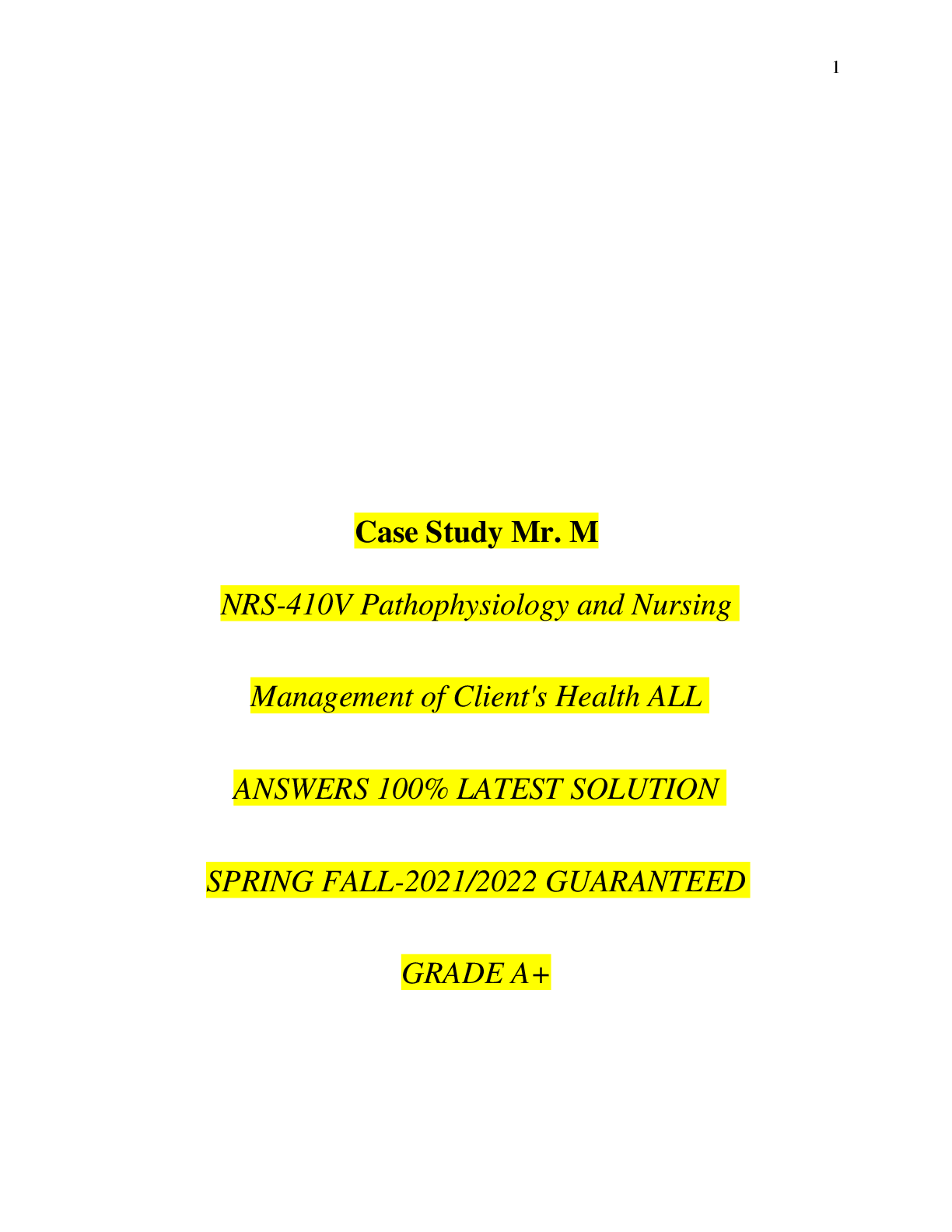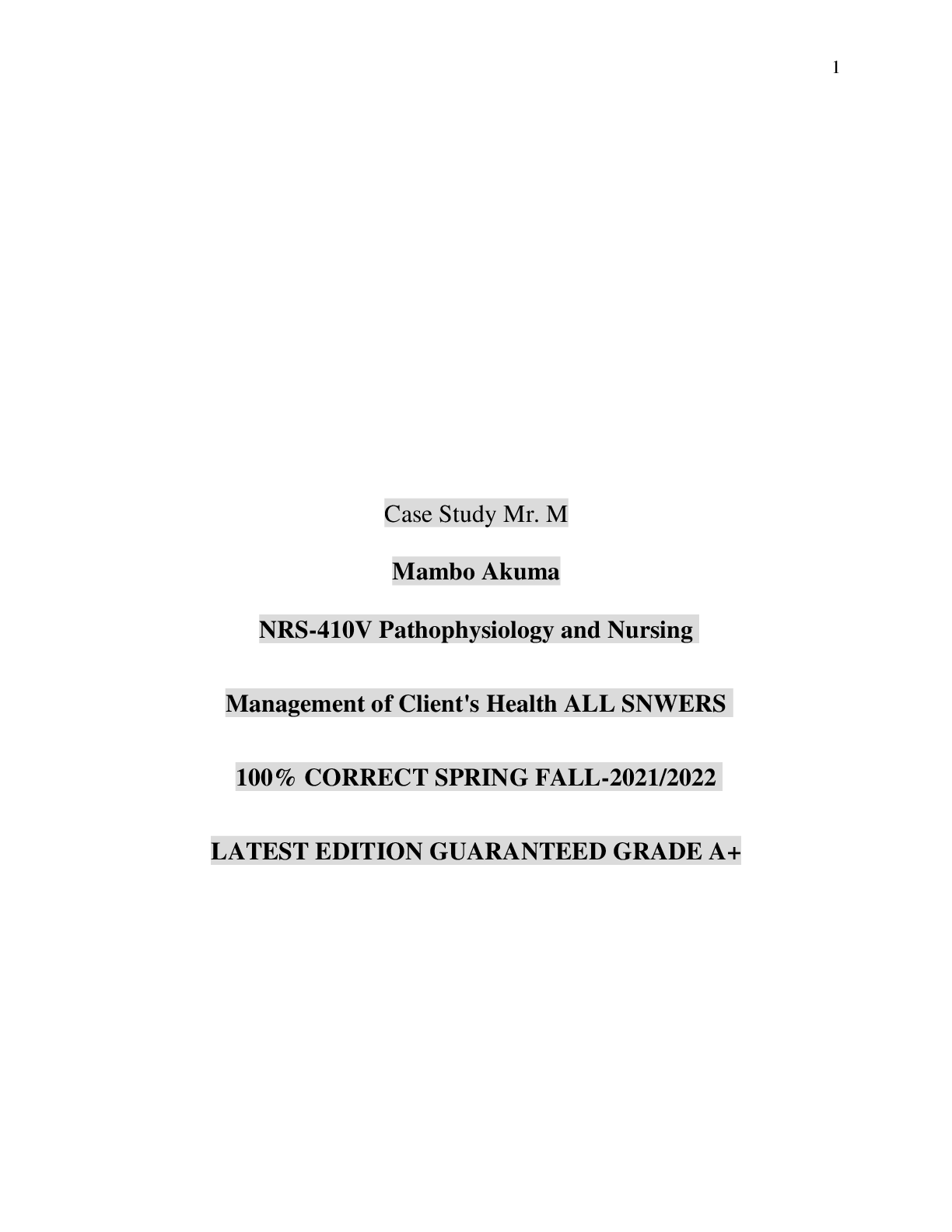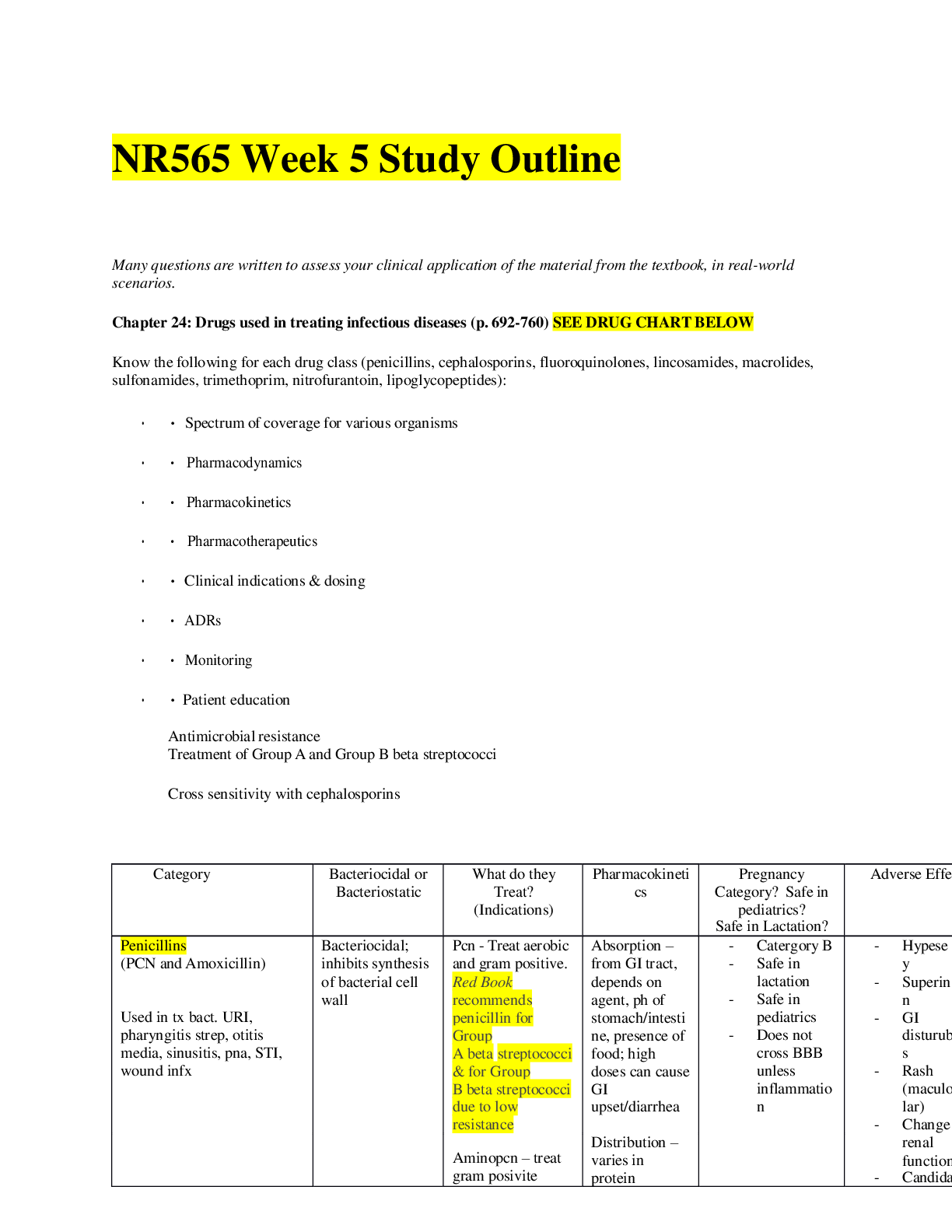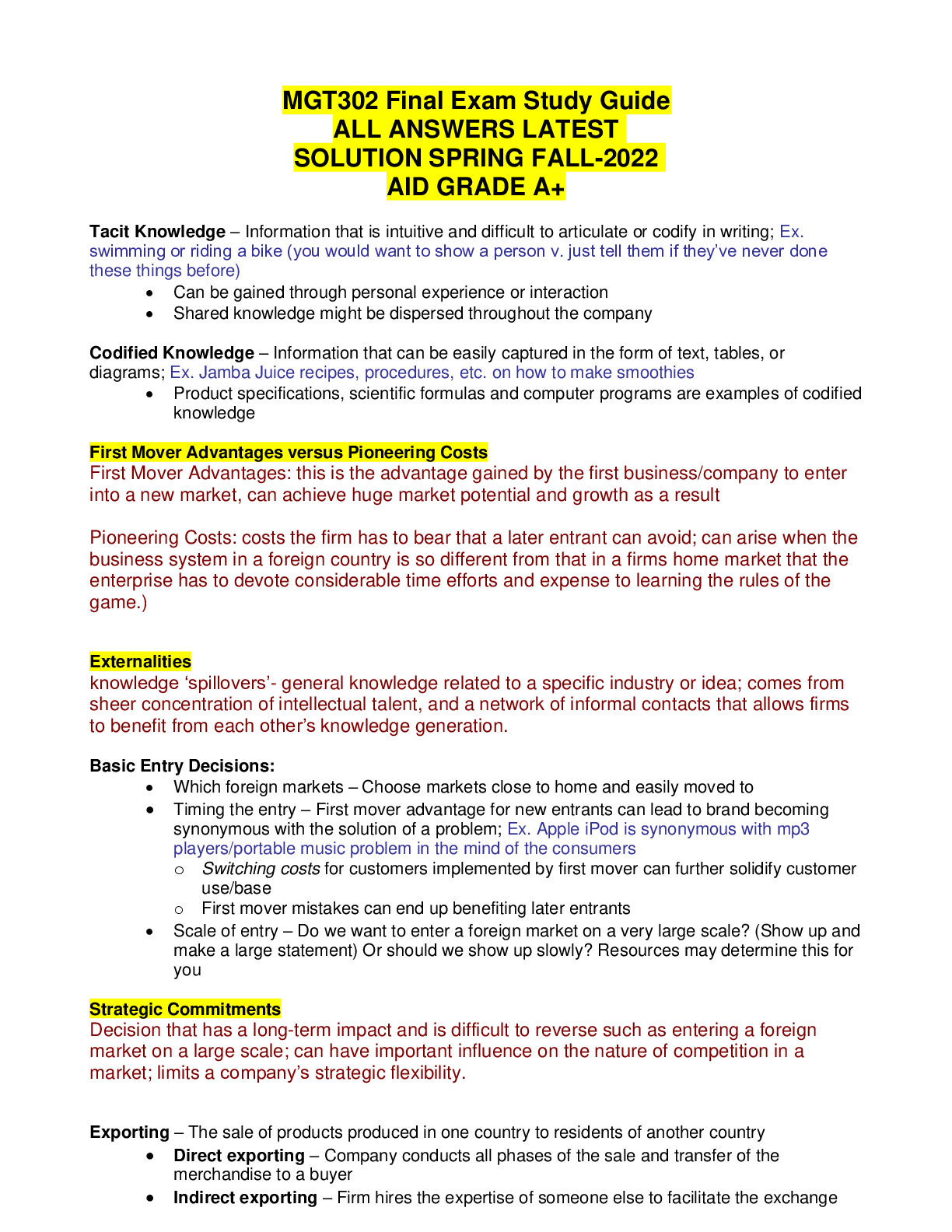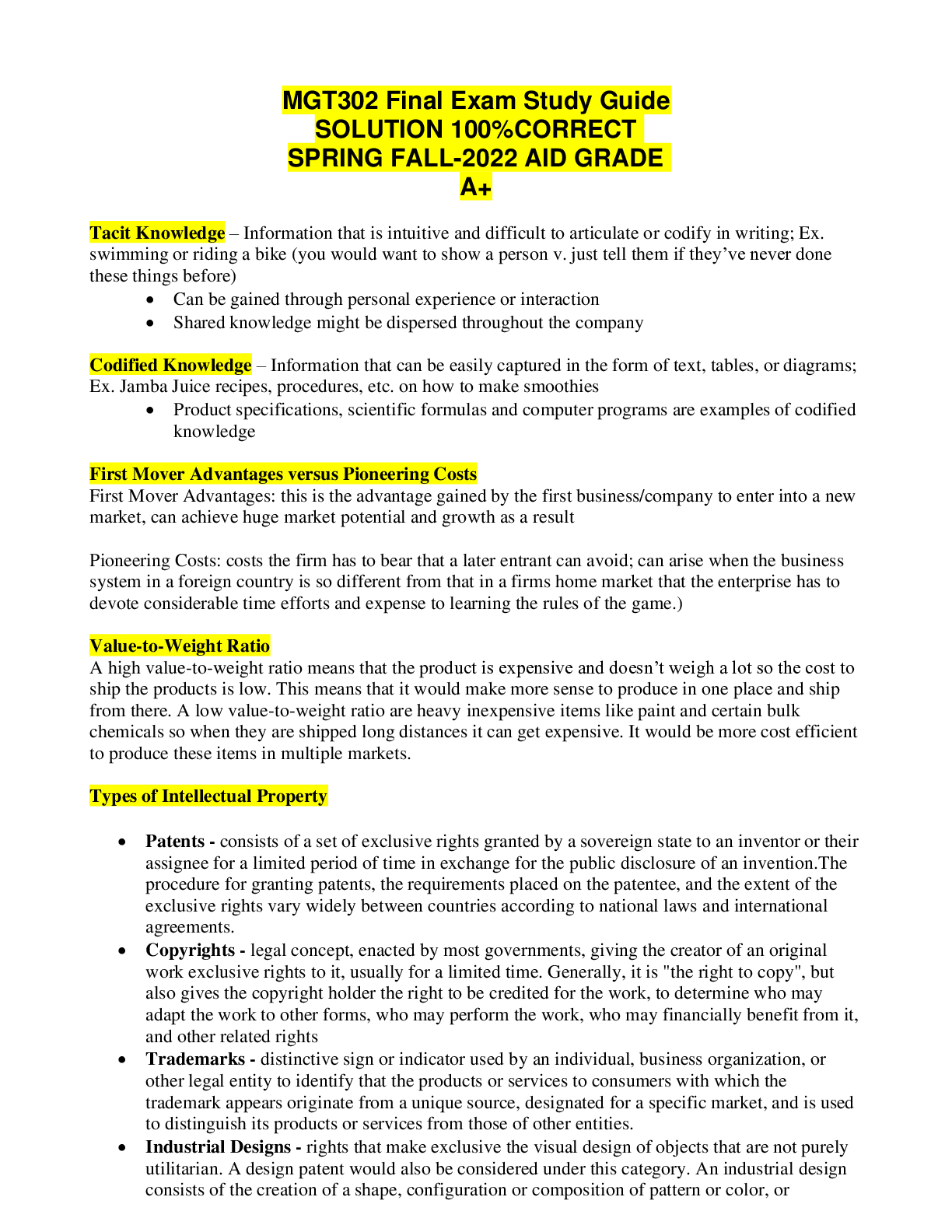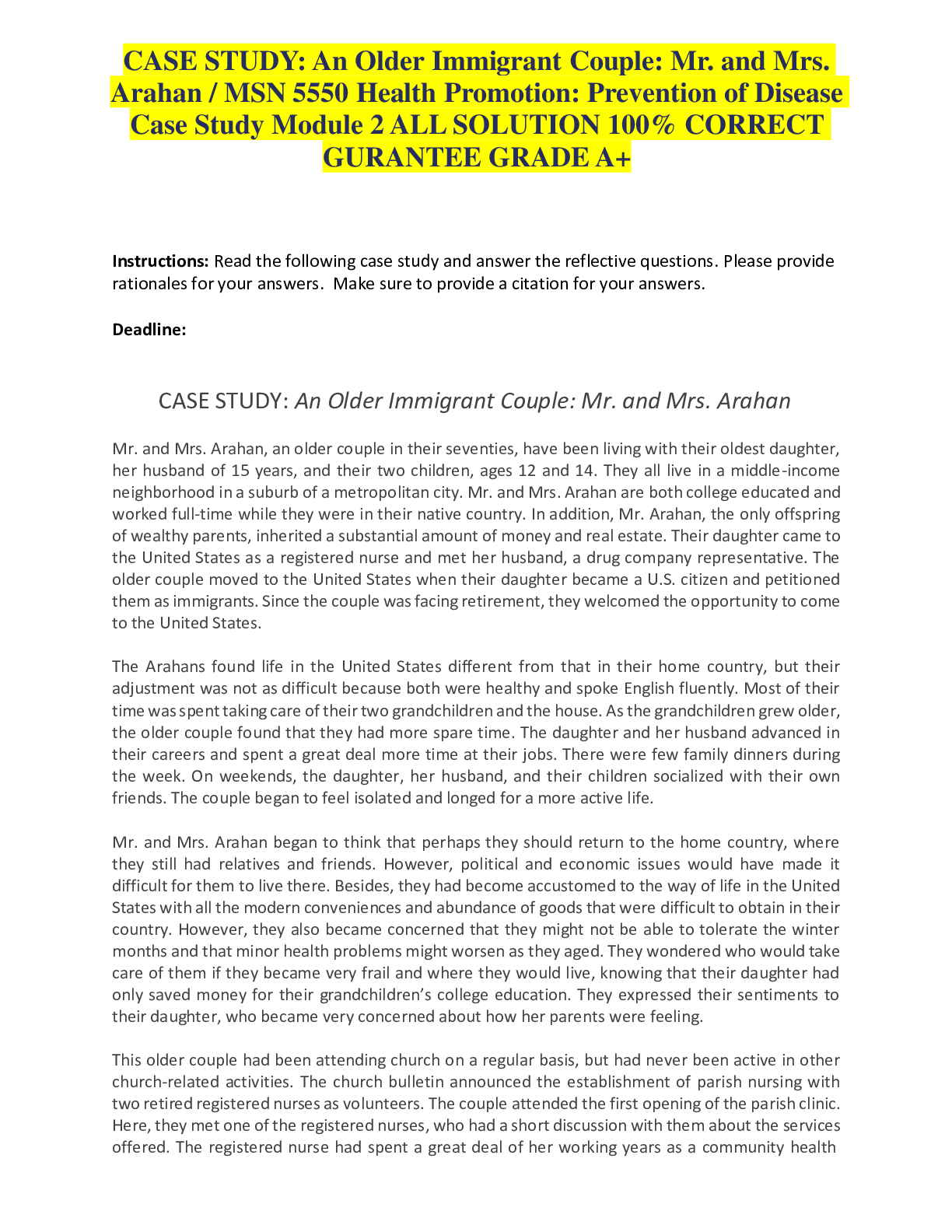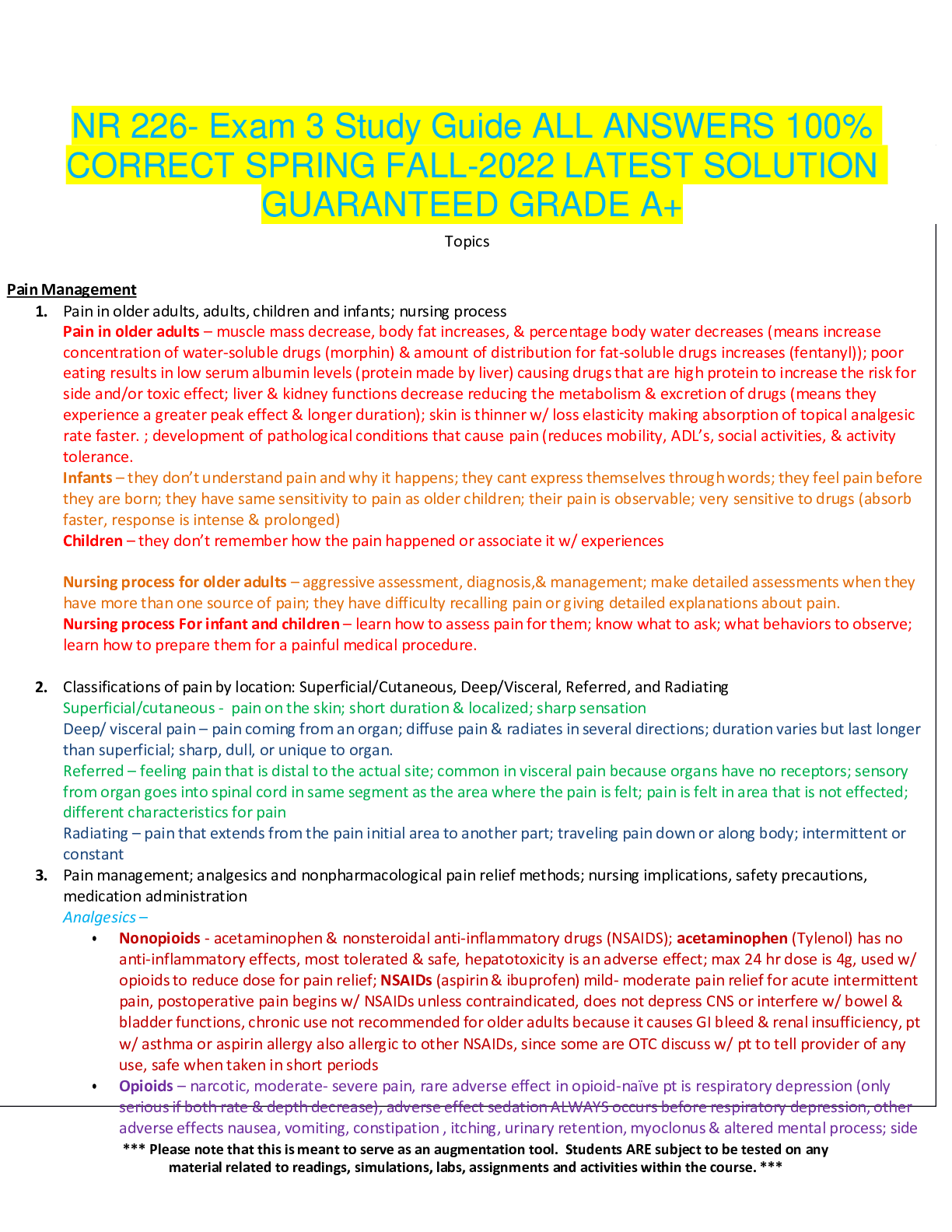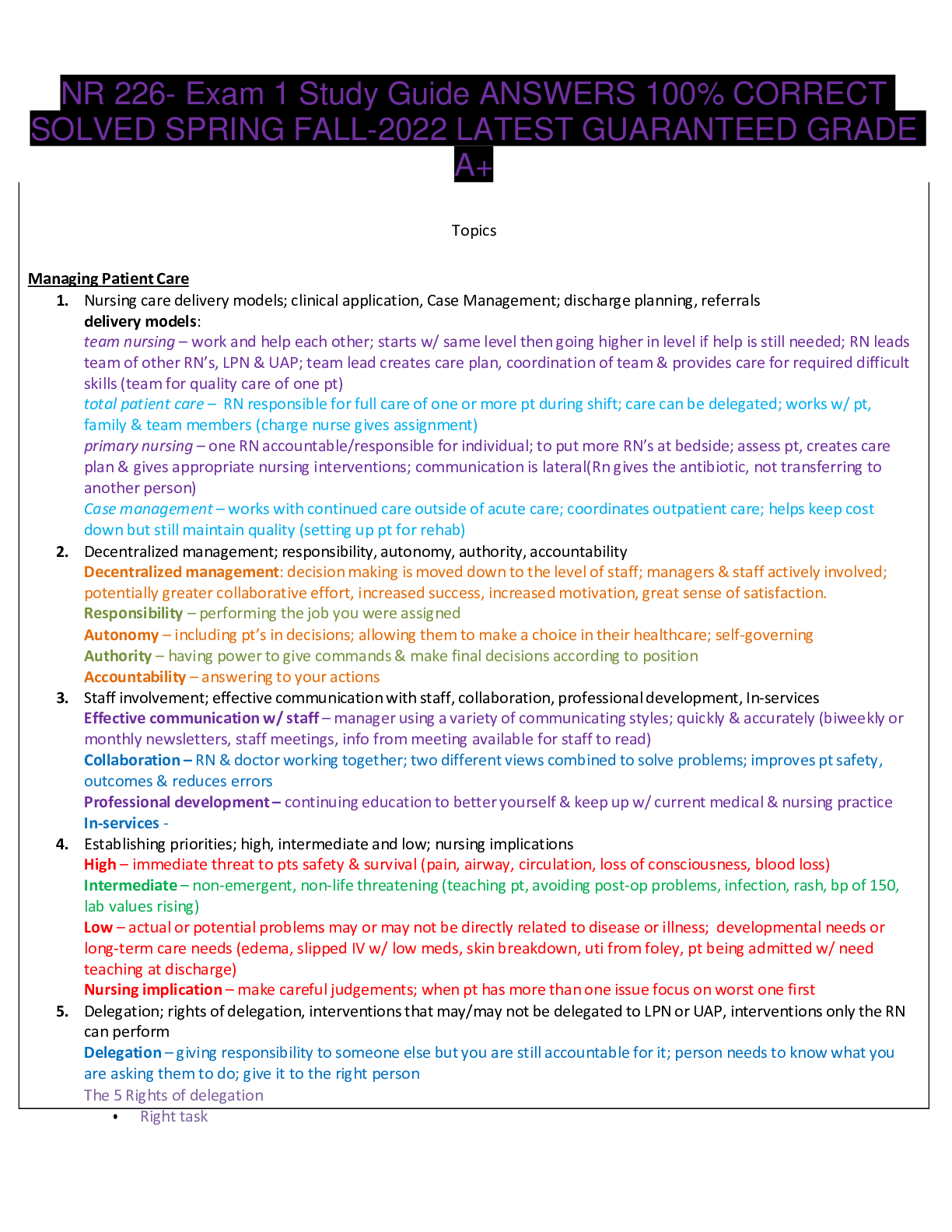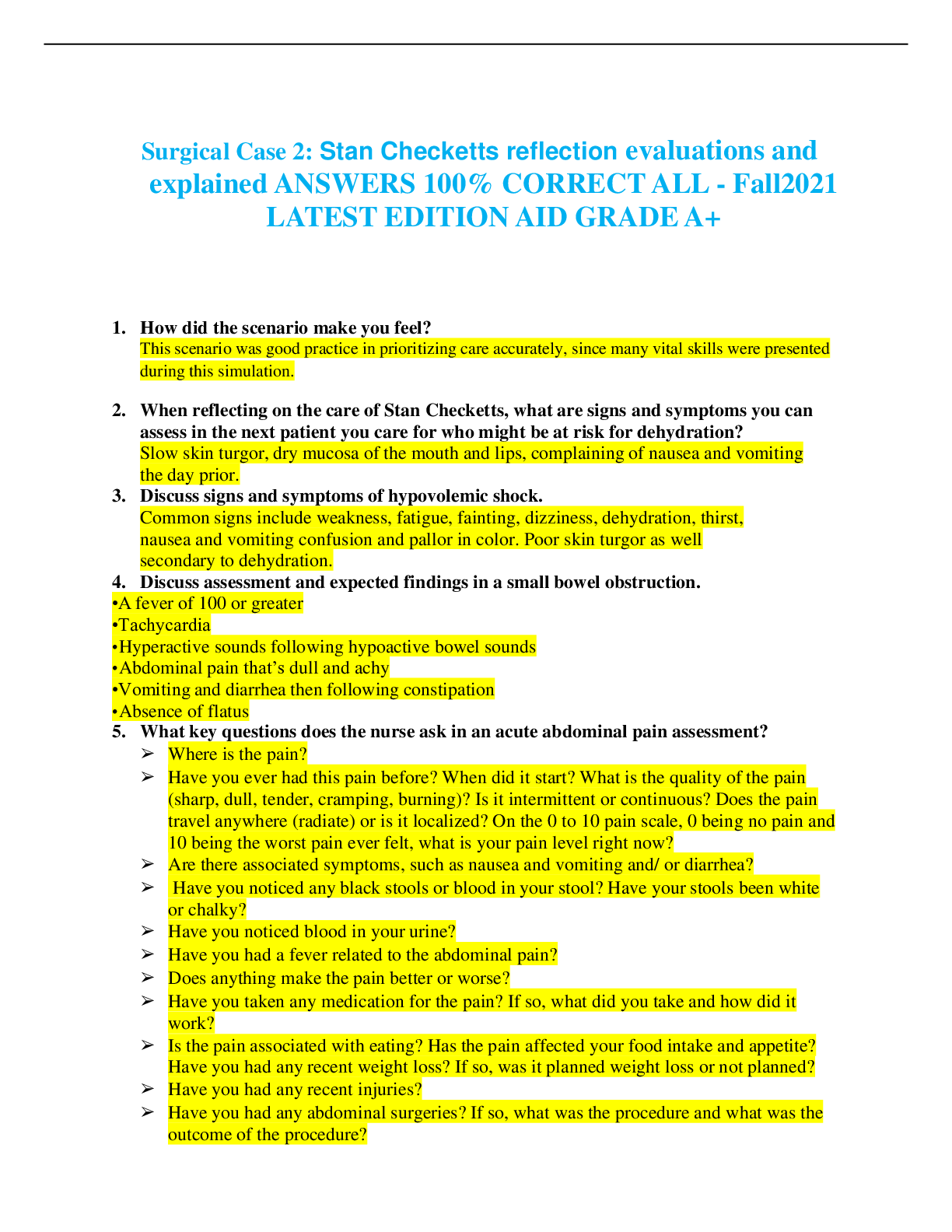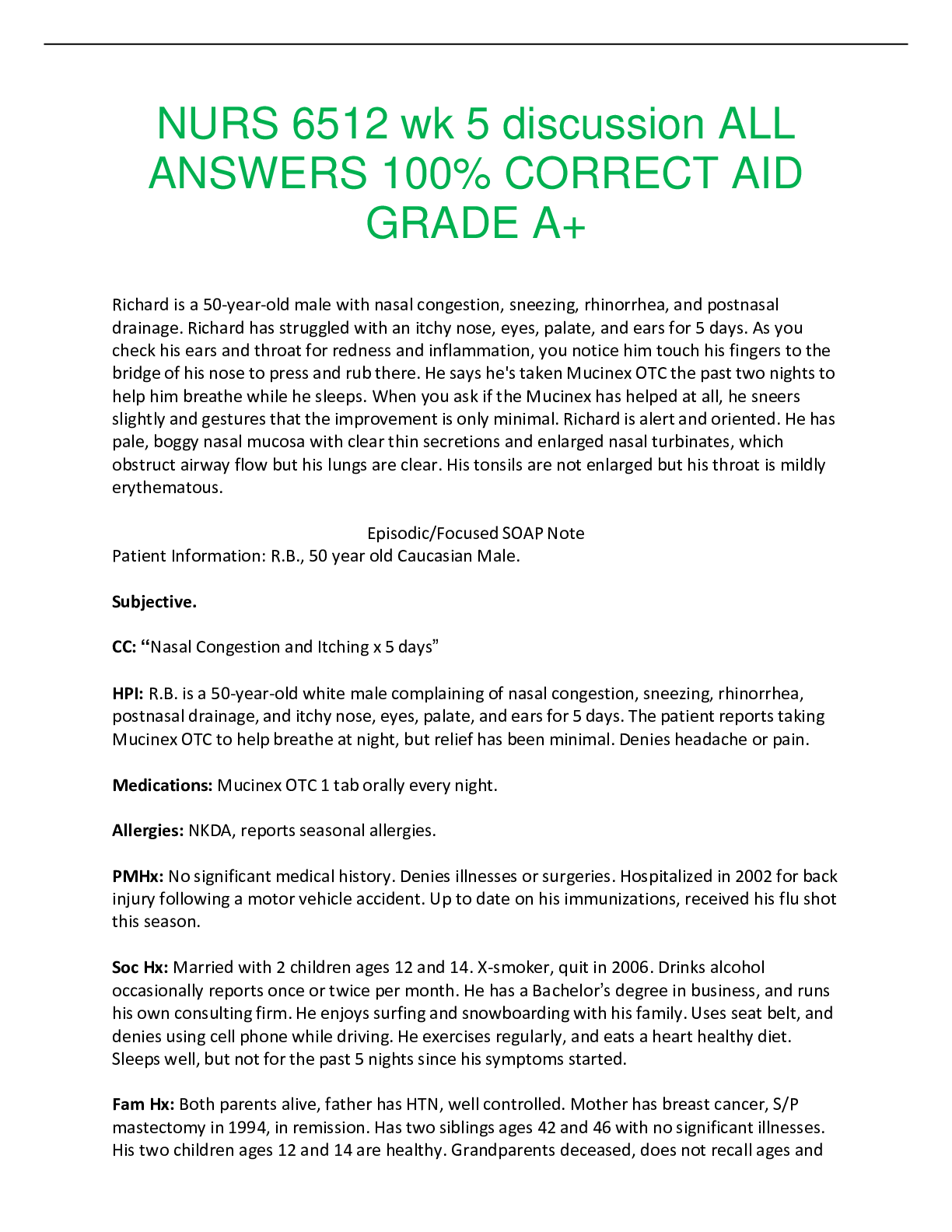*NURSING > CASE STUDY > Case Study: Mr. M Grand Canyon University: NRS-410V ALL ANSWERS 100% CORRECT SPRING FALL-2021/2022 (All)
Case Study: Mr. M Grand Canyon University: NRS-410V ALL ANSWERS 100% CORRECT SPRING FALL-2021/2022 LATEST SOLUTION GUARANTEED GRADE A+
Document Content and Description Below
Case Study: Mr. M Mr. M is a geriatric patient presenting with serious symptoms that require immediate assessment and intervention. The purpose of this paper is to analyze a case study on Mr. M and... discuss the clinical manifestations that he presents as well as the diagnoses that should be considered and any abnormalities. This paper will also discuss the psychological, physical, and emotional effects that Mr. M’s health status may have on him and his family, as well as the interventions that can be put into place to help support them. In addition, it will cover four actual or potential problems he may now face. Clinical Manifestation of Mr. M Mr. M is a 70 year old male who has been receiving treatment for hypertension and hypercholesterolemia. He currently takes lisinopril 20mg daily, Lipitor 40mg daily, Xanax 0.5mg PRN, Ambien 10mg PRN, and ibuprofen 400 mg PRN. For the last two months, Mr. M has been deteriorating mentally and physically as evidenced by his new dependency with ADLs and his confusion related to time, names, and places. He has had trouble recalling names of family members, being able to repeat what he has just read, and remembering his own room number. He also frequently gets lost and requires assistance to get back to his room. His vital signs are within normal limits aside from increased respirations and being overweight. The CT shows no changes since the previous scan. His urinalysis reported cloudiness and moderate leukocytes. Mr. M has increased lymphocytes and an elevated WBC count. Diagnoses and Second Diagnoses A likely primary diagnoses based on Mr. M’s presentation of symptoms is a urinary tract infection (UTI). His lab work indicates an infection related to the elevated WBC count and Leukocytes at 6700, as well as the urine having a cloudy appearance. UTI’s commonly present with signs and symptoms of urinary frequency, urgency, dysuria, an elevated white blood cell count, leukocytosis, and urine changes such as cloudy urine, however, older adults may also present with cognitive deficits, impaired ability to communicate, incontinence, anorexia, and a decline in functional status (Rowe & Juthani-Mehta, 2013). Mr. M has been experiencing most of the signs and symptoms of a geriatric specific UTI. A potential secondary diagnosis for Mr. M based on his symptoms would be Alzheimer’s disease, more specifically the middle stage. This is a secondary diagnosis because there is no reversal or cure for this disease, unlike a UTI which can be cured and would eliminate all of the newly presenting symptoms Mr. M is exhibiting. Issues with bladder and bowel changes occur during this stage of Alzheimer’s diseases and soon the inability to perform ADLs progresses (Falkner & Green, 2018). Mr. M exhibits many of the symptoms that present with this specific stage of Alzheimer's disease. The middle stage of Alzheimers disease is commonly identified by an increased risk of wandering and becoming lost, being unable to recall personal information, confusion about where one is, being withdrawn, forgetfulness about events or personal history, and behavioral changes (Falkner & Green, 2018). Nursing Assessment As a nurse assessing Mr. M, one would expect to find him disoriented and confused. He may experience mood fluctuations and be unable to perform his activities of daily living. He may even appear afraid and and upset when he is unable to care for himself or understand what is being asked of him. Mr. M might present with delayed speech and overall body weakness and may appear agitated or aggressive. On assessment of the urine, a nurse would expect it to be foul smelling, cloudy, and concentrated. Mr. M would likely complain of increased frequency, urgency, or hesitancy. Physical, Psychological, and Emotional Effects The physical effects of Mr. M include pain, discomfort, unusual sleep patterns, the loss of independence in ADLs, and weakness. His body is fighting an infection which exhausts him and is requiring him to become fully dependent. He may need to consider physical and occupational therapy once cured to regain his mobility and ability to perform ADLs. The psychological effects appear more severe than the physical ones in this case of Mr. M. He has been experiencing debilitating confusion, anxiety, aggression, and fear. He has been waking at night and wandering the halls. The physical and psychological effects cause the emotional effects of these symptoms. Losing control of ones body and mind can cause depression and/or an anxiety disorder. [Show More]
Last updated: 1 year ago
Preview 1 out of 6 pages
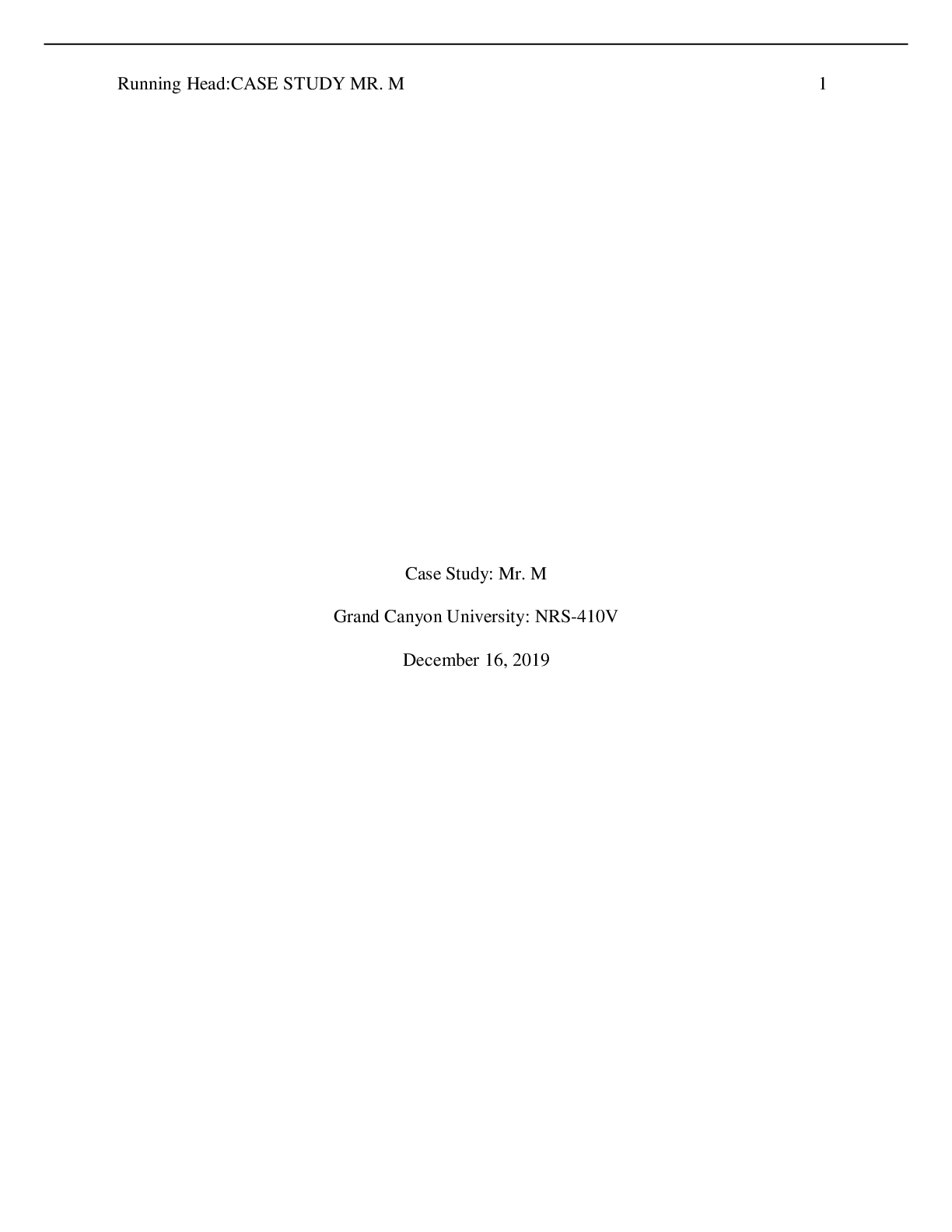
Reviews( 0 )
Document information
Connected school, study & course
About the document
Uploaded On
Jun 17, 2022
Number of pages
6
Written in
Additional information
This document has been written for:
Uploaded
Jun 17, 2022
Downloads
0
Views
247

